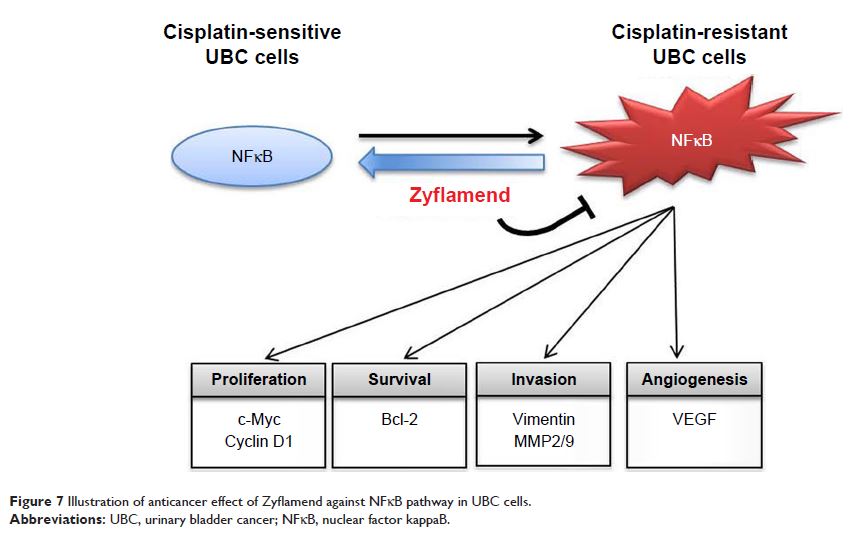108605
论文已发表
注册即可获取德孚的最新动态
IF 收录期刊
- 3.4 Breast Cancer (Dove Med Press)
- 3.2 Clin Epidemiol
- 2.6 Cancer Manag Res
- 2.9 Infect Drug Resist
- 3.7 Clin Interv Aging
- 5.1 Drug Des Dev Ther
- 3.1 Int J Chronic Obstr
- 6.6 Int J Nanomed
- 2.6 Int J Women's Health
- 2.9 Neuropsych Dis Treat
- 2.8 OncoTargets Ther
- 2.0 Patient Prefer Adher
- 2.2 Ther Clin Risk Manag
- 2.5 J Pain Res
- 3.0 Diabet Metab Synd Ob
- 3.2 Psychol Res Behav Ma
- 3.4 Nat Sci Sleep
- 1.8 Pharmgenomics Pers Med
- 2.0 Risk Manag Healthc Policy
- 4.1 J Inflamm Res
- 2.0 Int J Gen Med
- 3.4 J Hepatocell Carcinoma
- 3.0 J Asthma Allergy
- 2.2 Clin Cosmet Investig Dermatol
- 2.4 J Multidiscip Healthc

Zyflamend 联合化疗通过抑制 NFκB 信号通路降低了膀胱癌细胞对顺铂的获得耐药性
Authors Xue Y, Yang L, Li J, Yan Y, Jiang Q, Shen L, Yang S, Shen B, Huang R, Yan J, Guo H
Received 11 January 2018
Accepted for publication 20 April 2018
Published 30 July 2018 Volume 2018:11 Pages 4413—4429
DOI https://doi.org/10.2147/OTT.S162255
Checked for plagiarism Yes
Review by Single-blind
Peer reviewers approved by Dr Cristina Weinberg
Peer reviewer comments 2
Editor who approved publication: Prof. Dr. Geoffrey Pietersz
Background: Cisplatin-based chemotherapy is mainstay treatment in urinary
bladder cancer (UBC). However, tumor recurrence frequently occurs with the
acquisition of cisplatin resistance. We explored the potential effect of a
polyherbal preparation, Zyflamend, on UBC cells resistant to cisplatin treatment.
Methods: To establish a cisplatin-resistant human bladder
cancer cell line, T24 cells were cultured in increasing concentrations of
cisplatin for more than 10 months. These cells (T24R) were then treated with
different concentrations of Zyflamend, and both proliferation and activity of
nuclear factor kappaB (NFκB) signaling pathway were examined. To test the
synergistic effect between Zyflamend and cisplatin, we treated T24R cells
either with Zyflamend or cisplatin alone, or in combination. Apoptotic effect
was evaluated by Annexin V/propidium iodide double staining, and the levels of
the proteins involved in cell cycle and anti-apoptosis were examined by Western
blotting. Finally, mice with palpable xenograft were treated either with
cisplatin and Zyflamend alone or in combination for 28 days before they were
sacrificed for measuring the sizes and weights of the tumor tissues. In
addition, proliferation and apoptosis markers were examined by
immunohistochemistry.
Results: Comparing to that in the parental T24 cells,
NFκB is constitutively active in cisplatin-resistant T24R cells. Zyflamend is
capable of inhibiting the growth of T24, T24R, as well as another UBC cell line
J82 in a concentration-dependent manner. Mechanistically, Zyflamend suppresses NFκB-mediated
cell proliferation, survival, and invasion/angiogenesis and induces apoptosis.
In addition, Zyflamend significantly increased the sensitivity of T24R and J82
cells to cisplatin treatment and these findings were confirmed in T24R
xenograft model with reduced proliferation index and decreased expression of
RelA and its downstream target MMP9.
Conclusion: Zyflamend is capable of counteracting bladder
cancer resistance to cisplatin by repressing proliferation and inducing
apoptosis through targeting NFκB signaling pathway.
Keywords: Zyflamend,
cisplatin, bladder cancer, NFκB, acquired resistance
摘要视频链接:Combination chemotherapy with
Zyflamend
